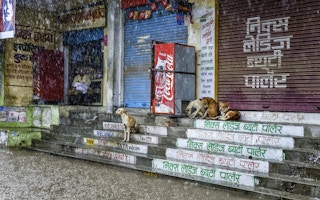A year ago, I outlined key next steps for the Green Climate Fund (GCF) after the adoption of the Paris climate change agreement, to promote climate resilience for poor and vulnerable communities. Now as the fund’s board kicks off its 16th meeting, it is time to assess some of the progress achieved and barriers remaining.
The slow pace of getting programmes up and running is a concern. From a list of 35 approved projects with allocated funding of $1.5 billion, only one has met all the conditions needed for the release of funds by the GCF. That means only $5.5 million has been spent so far, according to information provided by the GCF Secretariat.
Even projects that were approved in late 2015, like a U.N.-led early-warning system expansion project in Malawi, have still not progressed.
For quite some time, the agencies overseeing project implementation faced difficulties in putting in place agreements for their accreditation with the GCF. In addition, many projects have been approved with specific conditions to ensure key requirements are met, adding to the delay.
But work now needs to start on the ground, and the GCF must deliver for the people affected by climate change. It is vital that its board and implementing agencies find ways to accelerate this process.
With the GCF offering a huge opportunity to support poor people’s adaptation efforts, CARE engages in the fund to contribute our practical experience and help shape its design. A new initiative we are part of seeks to help civil society organisations in African countries understand and get involved in GCF matters at the national level.
The current GCF project pipeline comprises around 50 projects expected to request over $3 billion from the fund’s resources. According to project information, the proposals relating to climate change adaptation and resilience would benefit some 174 million people.
At this week’s meeting, the board is considering 9 project proposals, requesting $855 million of GCF funds. Four of these are specifically about adaptation, while one in Ethiopia addresses both climate change mitigation and adaptation. The biggest adaptation requests are from Tanzania, for $109 million, and Ethiopia for almost $100 million.
Analysis by the GCF’s independent technical advisory panel comes to different conclusions about these proposals, proposing to approve some while being more critical of others. GCF board members will have to ensure the projects strike the right balance between addressing the pressing development needs of vulnerable people and communities, while including interventions to adapt to current and future climate changes.
Fortunately, gender equality plays an increasing role across these projects, and the public disclosure of their gender assessments and action plans helps us understand the approaches taken.
Community input
Last year, the GCF board also decided on activities for Enhancing Direct Access (EDA), with the goal of improving country ownership of projects and programmes. The aim is to devolve decision making to the national level, allowing greater involvement and input from climate-impacted people. This could increase opportunities for local communities to directly put forward proposals.
A pilot programme was initiated with an allocation of $200 million last summer. The GCF Secretariat reports that so far 13 concept notes have been submitted, with one proposal from Namibia approved in October. But no further approval is up for discussion at this board meeting.
Interestingly, the water and food security-related programme proposed by Tanzania through the UNDP - though not direct access but international access - would mandate regional offices to receive proposals for activities from local communities. That would allow them to identify which measures best suit their adaptation needs.
A year ago the board considered first steps to put in place a monitoring and evaluation system to enable project progress to be tracked and the GCF to benefit from learning. The GCF’s initial accountability framework also refers to the need to apply participatory monitoring approaches and encourages countries to undertake annual participatory reviews of the GCF portfolio.
These are meant to involve in particular people and communities affected by projects, including women and civil society groups.
Unfortunately, decisions on the fund’s environmental and social management system - a key element of the wider accountability framework - are delayed and will have to be taken up at a later meeting. Getting this system in place early on is essential to ensure the environmental and social integrity of the GCF project activities.
2016 was the year when the world put the Paris Agreement into effect - 2017 must kick start concrete actions by the GCF that support the poor most at risk of climate change. There is no more time to lose.
Sven Harmeling is climate change advocacy coordinator, Care International. This article is republished from Thomson Reuters Foundation.









